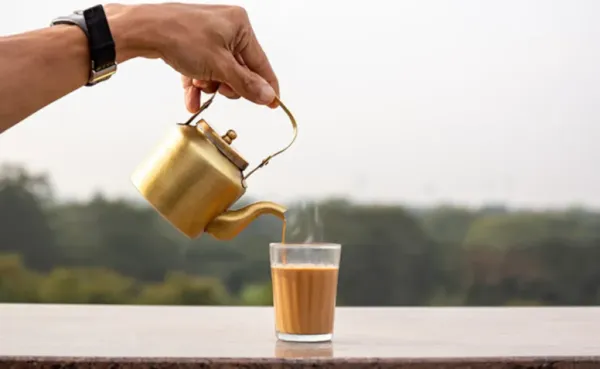
The medal citation is simple but powerful: “For magnificent courage and endurance in Japanese Prison Camps... and for saving many lives.”
But the honour does not belong to one of the brave troops who battled in the Far East campaign of WWII but to a dog.
Judy the pointer was the only animal to be officially recognised as a prisoner of war in the conflict, and one of a handful to receive the Dickin Medal, the animal equivalent of the Victoria Cross. It comes after a mum claimed 'I accidentally named baby after dog food brand and I don't know what to do'.
READ MORE: Top Gear host admits he 'never got along' with Jeremy Clarkson as he makes bold statement
READ MORE: Strictly's Anton Du Beke shares heartbreak over wife's 'cruel and inexplicable' diagnosis

Now, ahead of the 80th commemorations of VJ Day on August 15, her incredible story of capture, survival and courage is being brought to life for the next generation in a new book.
War Dog, by children’s author Tom Palmer, charts Judy’s astonishing life-saving heroics and stands as testimony to the love and loyalty of our canine companions, even in the most difficult of circumstances.
“There are still stories to be uncovered about the war and Judy’s is utterly fascinating,” says Tom, a dad-of-one and dog owner from Halifax, West Yorks, who has written more than 60 children’s books.
“What she did is unbelievable. It feels almost made-up but it’s totally true. There are contemporaneous accounts from former PoWs who were with her in Japan and saw her actions with their own eyes.
“I want the book to show how animals bring hope in difficult times. I also want it to try to explain conflict. War is difficult for children to grasp. But understanding its significance helps them make sense of what’s happening today.”

Judy’ story began in Shanghai in 1936 where she was born as part of a litter of seven in kennels used by Europeans expats.
She was subsequently bought by the Royal Navy as a ship’s mascot for HMS Gnat, part of the defence fleet in the Far East. Animals would often be adopted by warship crews to help with pest control and to boost morale.
Judy proved a popular addition, alerting the crew to the presence of river pirates trying to board in the darkness. She and some crew later served on HMS Grasshopper and it was here she found herself at the outbreak of war against Japan in December 1941. As Allied forces retreated, the vessel was bombed by Japanese aircraft and troops were forced to abandon ship.
It was now that the dog’s resourcefulness showed, and her first life-saving act occurred. Marooned briefly in an uninhabited island without water, members of the crew were saved after Judy located a freshwater spring from which to drink.

She and her human comrades headed for Sumatra hoping to unite with other fleeing Allied forces but the move was in vain. The troops had already left.
Having survived a jungle alligator attack, Judy and her crew were immediately taken as prisoners of war by Japanese forces.
“Conditions in the camps were horrendous,” explains Imperial War Museum curator Simon Offord.
“It was hot, humid and diseases such as malaria, typhus and dysentery were rife.
“Japan had not signed up to the Geneva Convention so food was scarce and any infraction was met with punishment – beatings and even executions.
“There is a reason why many of those who returned chose not to talk about their experience afterwards.”

Within days of capture, the British men and their dog were billeted in Medan in north Sumatra and Judy met the man who would become her lifetime companion, Leading Aircraftman Frank Williams.
In a later interview, Frank recalled: “I remember thinking, ‘What on earth is a beautiful pointer doing here with no-one to care for her?’ I realised that even though she was thin, she was a survivor.”
Frank, originally from Portsmouth, began sharing his meagre meals of boiled rice with Judy. He also managed to persuade his captors to register her as a PoW so she could have her own rations. She repaid his kindness, and that of his comrades, in spades, fighting off snakes and scorpions in the camp and hunting for rabbits to eat.
Judy helped lift morale, barking and growling to distract Japanese guards when they were meting out punishments, often putting herself in danger. Simon says: “There is a special relationship, I think, between animals and humans in theatres of war. They undergo the same dangers and privations,” reflects Simon.
By mid 1944, the PoWs were being moved from Medan to Singapore but there was a problem, dogs were not allowed on board the transfer ship.

Undeterred, Frank taught Judy how to jump into a sack and stay perfectly still. She spent three hours in silence on his back as he and his comrades were forced to stand on deck in searing heat.
But their problems were only just beginning. The ship, packed with 700 troops, was torpedoed. More than 500 men died.
Frank survived but pushed Judy out of a porthole to save her. It was later reported the dog was spotted trying to help the floundering men around her, pushing pieces of wood towards non-swimmers. Frank was captured, yet astonishingly man and dog were reunited a month later at a camp in Singapore, Judy having been pulled out of the water by a fellow survivor.
He recalled: “I couldn’t believe my eyes. I’d never been so glad to see the old girl. And I think she felt the same!”
The pair, together with thousands of others, spent the next year cutting through the jungle to lay railway tracks. It was Judy’s job to warn of approaching tigers.
She regularly escaped being shot at by guards and was finally sentenced to death. She fled into the jungle, reappearing days later when, with the war nearing its end, Japanese forces abandoned the camp.
Judy was smuggled back to the UK on board a troopship. She was awarded the Dickin medal in 1946. The full citation reads: “For magnificent courage and endurance in Japanese prison camps, which helped to maintain morale among her fellow prisoners and also saving many lives through her intelligence and watchfulness.”

She spent the following months with Frank visiting and bringing comfort to relatives of PoWs who had not survived. She remained by Frank’s side until the day she died in 1950 and was buried in her RAF jacket with her campaign medals: the Pacific Star, Defence Medal and 1939-1945 Star. Her collar and Dickin medal are held by the Imperial War Museum.
A bronze statue of Judy is now part of the National Military Working Dogs Memorial in Holywell, North Wales.
Simon, author of the book Animals in Wartime, said: “There were 16 million animals who took part in WWI when every gun, every ambulance had to be moved by horse. Even in WWII, pigeons were used by the RAF. Bomber aircraft carried them in pairs so if the crew was shot down, the birds could fly back to raise the alert.
“Judy’s story is remarkable. It exemplifies the inscription on every Dickin medal: ‘We Also Serve’.”
War Dog, written by Tom Palmer and illustrated by Carolina Rabei, is out on August 14, published by Scholastic.
-
Want to be long? Then ‘these’ vegetables must be eaten every week

-
Do not forget to drink tea after eating apple! Learn 4 things after which tea is harmful

-
Wish your friends with lovely messages on this friendship day, face will blossom

-
This is the correct date of Dahi Handi 2025, know the story of this unique Leela of Bal Gopal

-
Tech Tips: Remember before buying Smart Ring ‘these’ 5 important things, otherwise you will repent
